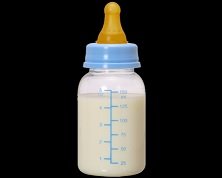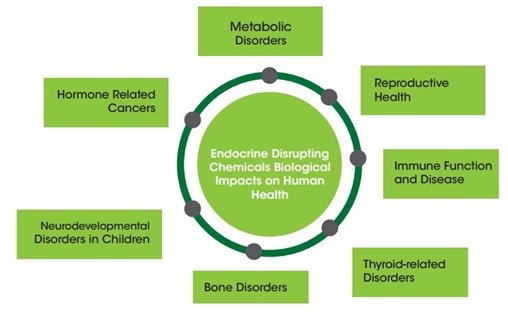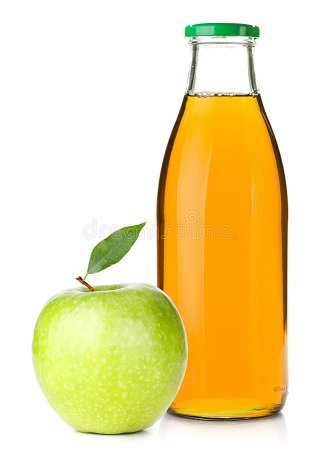Common acidic foods include vinegar, lemon juice, tomatoes, fruit juices, milk, cola and other fizzy drinks. Food that is acidic can react with materials such as plastic containers and packaging, which may contain toxic components such as bisphenol A (BPA), bisphenol S (BPS), bisphenol F (BPF), lead and antimony, to list just a few amongst potentially thousands.

When acidic food is stored in plastic containers, or comes in contact with epoxy resins found in food packaging, leaching of these toxic compounds can occur. One study has shown that, when in contact with acidic foods, there is increased leaching of toxins from plastic or plastic-lined baby bottles. Another study found that darker coloured bottles leach more toxins than light or clear ones when in contact with acidic foods, and that leaching actually increases over the lifespan of a product. While it may seem simple to avoid ‘acidic’ foods and drinks, it may be surprising that milk, a common beverage served in plastic baby bottles, is in fact an acidic liquid

Some studies have shown that the levels of toxic substances leaching from plastic containers when in contact with acidic food are not above the levels deemed ‘safe’ by the European Commission in Regulation 10/2011, thus suggesting that this leaching should not be a concern for health.[4] However other studies suggest that even doses below the accepted ‘safe’ limit of BPA, for example, can be harmful.[5] BPA is a recognized endocrine disruptor, meaning it interferes with hormonal systems in mammals .It has also been demonstrated that exposure during gestation and in the first few weeks following birth may be associated with male and female infertility, an increased predisposition to breast and prostate cancer and behavioral abnormalities. Concerns over the impact of the endocrine disruptor BPA on health have resulted in its removal from many consumer products, especially baby bottles, which are therefore named “BPA Free”. In many cases, however, the BPA in these products has been replaced with alternative toxic substances, such as bisphenol S (BPS) or bisphenol F (BPF), which have been shown to have similar, or potentially worse endocrine disrupting properties to BPA, with the unfortunate added potential for other adverse effects. Given that milk is an acidic liquid, which have been shown to increase the leaching of these substances, BPA-free bottles may not be the ‘safe’ alternative they are claimed to be.

Whilst it could be argued that the levels of leached toxins safely reside within the recommended limits, these limits often do not take into account multiple exposure routes or the volume or frequency of exposure. These regulations do not account for what may seem obvious: the vast difference in exposure to these toxins between consumers, for example those who drink no cola as opposed to those who drink five bottles. Given the increased rate of toxic chemical leaching when plastic is in contact with acidic food, a much safer option is to use glass containers for these products, but caution should still be taken, as glass containers often have plastic lid seals.

I know what you are talking about, i go upset when i see lemonade in plastic bottle
It's good to know there are others who share this opinion. All the best!